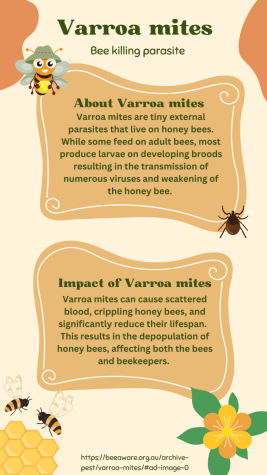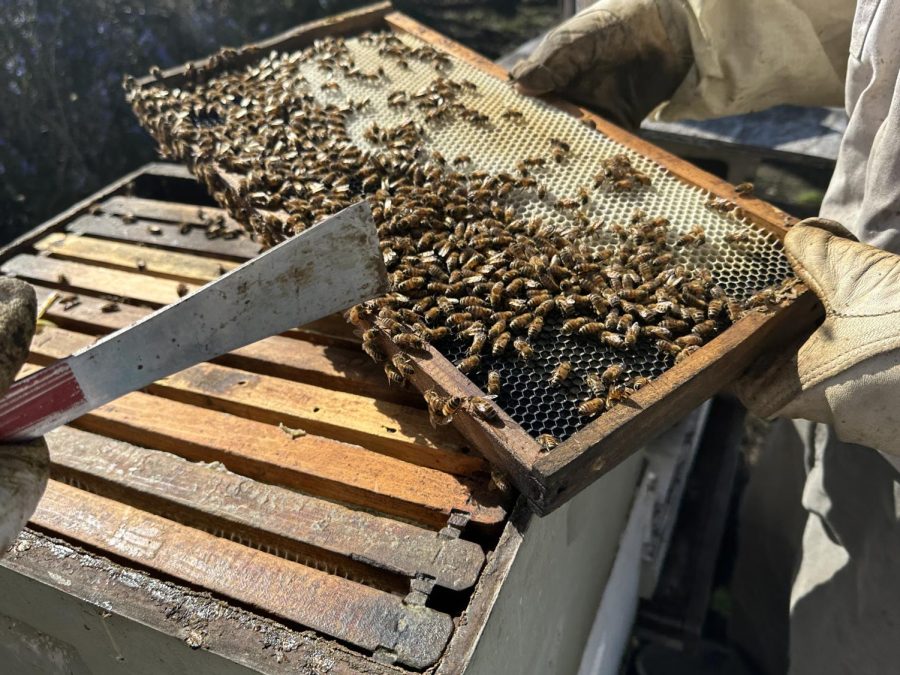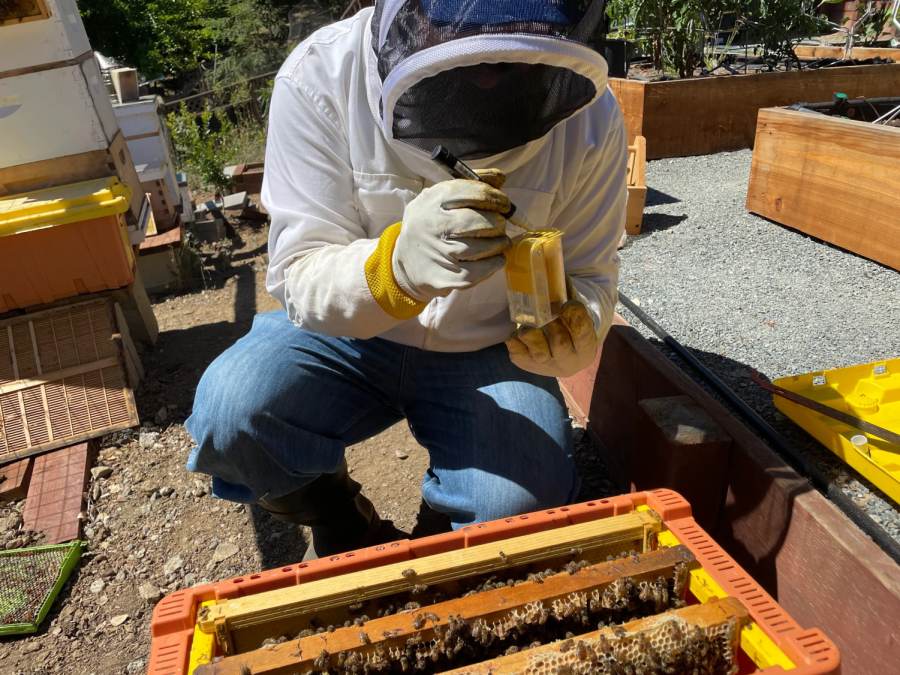Located on the San Francisco Peninsula, Honey by the Bay provides sustainably sourced honey and cosmetics to the community. It was started by founder Peter Moskovits as a small stand in front of his home. After overwhelming success, Moskovits grew his business and started to sell local honey and other goods to people up and down the peninsula.
“I created the website, took some pictures, and started writing down the things that are important to us,” Moskovits said.
Honey by the Bay prioritizes sustainability in their products. From ethically sourced honey to sustainable packaging, they believe it’s important to treat the bees gently. By using materials such as glass, bamboo, and beeswax, Honey by the Bay is able to minimize waste and treat the bees in a humane fashion.
“One thing that I knew upfront when I started beekeeping is I don’t do it so that we get something out of it,” Moskovits said. “We support the bees primarily and as we do it, we pay attention to every step so it’s done in a way that is friendly to our environment.”
The business also aims to sell its products to local residents in order to reduce shipping waste.
The process of honey creation is complex and interesting. While many people have developed modern methods of extracting honey, Moskovits does it in a more old-style fashion. The process begins with European honey bees collecting nectar from a variety of flowers to prepare for the winter.
“The reason why they need honey for the winter is that they have this very special way of living,” Moskovits said.
Honey by the Bay keeps their colonies at an exact temperature of 75 degrees Fahrenheit, similar to temperatures in the central parts of the U.S., Europe, or Asia. Using honey as a source of energy, the bees tend to create more than what is necessary, which is then collected by beekeepers such as Moskovits.
“It’s part of our job and our responsibility as beekeepers is to make sure that they always have enough honey for themselves,” Moskovits said.
After lifting the frames from the beehives, workers remove the capping from the top of the cells and use the crush and strain method to extract the honey.
“The idea is that we remove the honeycomb along with the honey, which allows us to give fresh frames to the bees every spring when they are building the cell first,” Moskovits said. “That means that the comb that we remove from the frames is very fresh, three, or four months old, and we get a very soft and white comb. That’s what we use to create different kinds of products.”
When running a business such as Honey by the Bay, Moskovits notes the difficulties regarding the death of bees after the spread of the parasite Varroa mite. Other people in the beekeeping field share similar views.

“Varroa exacerbates the strain on honey bee colonies to survive the winter time and can be an indicator of a colony that is not doing well,” said Taylor Rein, former UC Berkeley student, and leader of the Bee Campus USA.
According to the University of Minnesota’s Bee Lab, research shows that there is a 90-95% chance a bee colony will die within two years from the aftermath of mites if not properly addressed by a beekeeper.
Acknowledging and getting help from the local community is important to Honey by the Bay.
“Those who can learn from this and can basically be part of this experiment can see things that are kind of special and unique,” Moskovits said.
Teri Butler, a co-owner of Half Moon Honey, also notes the significance of the correct way for the community to handle bees.
“Call a local beekeeper if you see a swarm – they will be happy to relocate them and give them a good home,” Teri Butler said. “Bees do so many good things like pollinating many of our foods. They make excess honey that beekeepers harvest, and eating local honey is tasty, healthy, and great for your immune system.”
When running a sustainable business, it’s important for Moskovits to always side with his values over possible profits or gains.
“Whenever you have to make a business decision, it may not be in the best interest of your business, but it’s better for the things that truly matter and make a difference,” Moskovits said.













